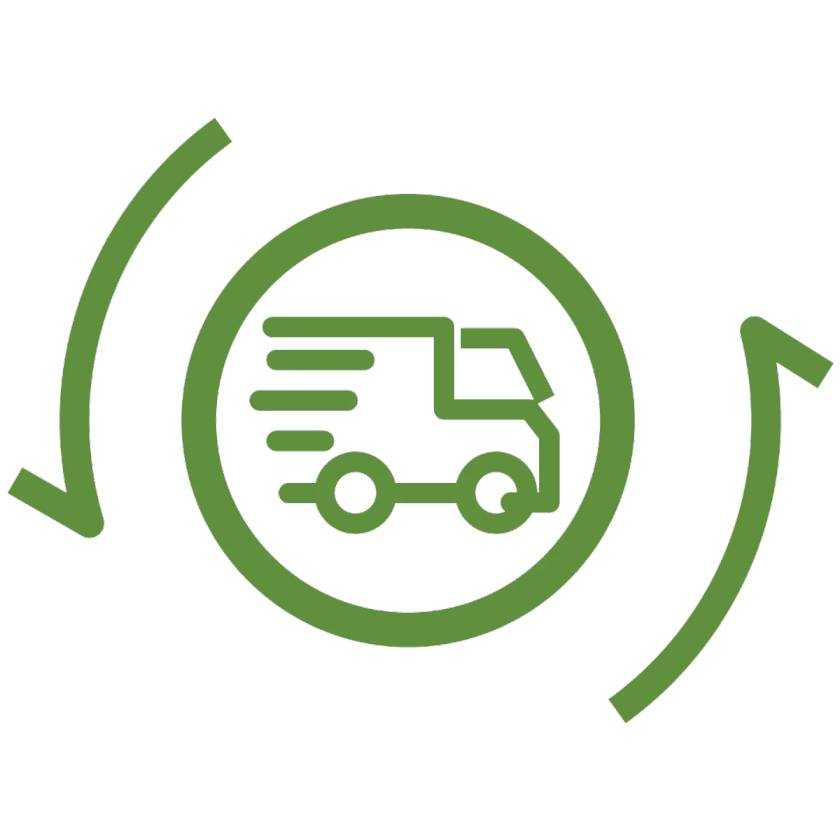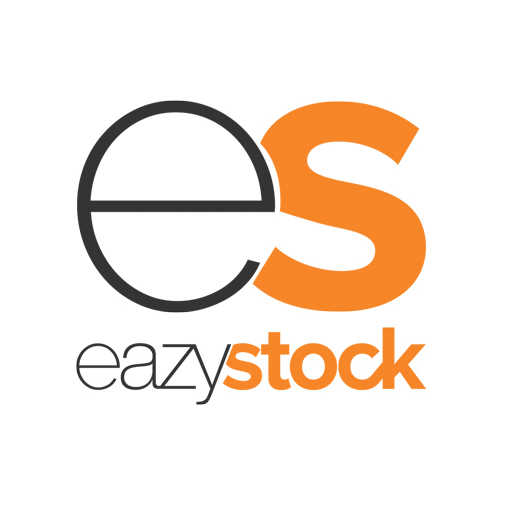What Is ECommerce Inventory Management Software?
A digital tool called eCommerce inventory management software was created to assist companies in monitoring, planning, and controlling their product inventories for online sales. It is a vital tool for any online shop since it offers a centralized system for tracking and managing inventory levels, expediting order fulfillment, and guaranteeing that customers have access to accurate product information and availability.
The company's eCommerce platform is usually integrated with this software, enabling real-time data synchronization and upgrades. By automating inventory control procedures including stock replenishment, inventory counts, and backorders, it lowers the amount of manual labor and human error involved in conventional inventory management techniques.
The capacity of eCommerce inventory management software to give companies comprehensive analytics and reporting on their stock levels and sales success is one of its primary benefits. Trends can be found, sales may be predicted, and purchasing and inventory strategy decisions can be well-informed with the use of this data. Additionally, this software frequently has other helpful capabilities like supplier management, multi-channel connectivity, and barcode scanning that increase productivity and streamline the overall inventory management process.
All things considered, eCommerce inventory management software is essential for internet companies trying to maintain their competitiveness in the quick-changing eCommerce market of today. It enables companies to meet client demand, maintain inventory control, and boost profitability. To select the best software for your business needs, it is crucial to evaluate its features and compatibility with your eCommerce platform before making a purchase.
What Are The Recent Trends In ECommerce Inventory Management Software?
The eCommerce sector has grown rapidly in recent years, and this has raised need for effective inventory management. As a result, eCommerce inventory management software has been continuously evolving. We will go over the latest developments in eCommerce inventory management software that purchasers need to be aware of in this buyer's guide.
1. Cloud-Based Solutions: Over the past few years, cloud-based solutions have been a major trend. The majority of eCommerce inventory management systems are now cloud-based due to the growth of online enterprises, enabling companies to access their inventory data at any time and from any location. This makes it convenient and affordable for companies of all sizes by doing away with the need to store and manage data on a physical server.
2. Automation: Automation is a significant trend in eCommerce inventory management software. These programs can now automate a wide range of functions, including tracking shipments, reordering products, and keeping an eye on stock levels, thanks to sophisticated algorithms and artificial intelligence. In addition to saving time, this lowers the possibility of human error, increasing accuracy and efficiency.
3. Integrations: To run their operations, eCommerce companies now use a variety of platforms, including shopping carts, marketplaces, and accounting software. Inventory management software now provides smooth integrations with various platforms to expedite these procedures, enabling companies to manage all operations from a single central system and sync their data.
4. Real-Time Analytics: In order for organizations to swiftly make well-informed decisions, it is now essential to collect and analyze real-time data. In response to this trend, real-time analytics are now a feature of inventory management software, giving companies comprehensive information about their sales, stock levels, and customer behavior. This increases profitability by assisting companies in predicting demand, cutting down on overstocking, and optimizing inventory levels.
5. Mobile Accessibility: Inventory management software has adjusted to the growing trend of mobile commerce. These days, a lot of software has mobile accessibility through applications, enabling companies to manage their stock, track orders, and check inventory levels while on the road. Businesses who operate in numerous regions or have multiple warehouses will especially benefit from this.
Benefits Of Using ECommerce Inventory Management Software
Any business owner hoping to optimize their operations and effectively manage their inventory in the online marketplace will find ecommerce inventory management software to be a useful tool. In order to remain competitive and satisfy client needs, businesses now need to have a strong inventory management system in place due to the growing popularity of eCommerce. Using eCommerce inventory management software has a number of advantages, which we shall go over in more depth below.
1. Centralized Inventory Management: Managing all of your inventory in one place is arguably the biggest advantage of utilizing eCommerce inventory management software. This eliminates the need for you to manually update your inventory across many platforms or manage several spreadsheets. Across all of your sales channels, you can use the program to view and track your inventory levels, sales, and orders in real time.
2. Automated Inventory Updates: When a sale occurs, manually updating inventory levels can be laborious and prone to human mistake. In order to guarantee that you always have accurate stock figures, eCommerce inventory management software automates this process by automatically updating inventory levels whenever a sale is made. This reduces the likelihood of stockouts or overselling in addition to saving time.
3. Real-Time Inventory Tracking: Sales, orders, and inventory levels can all be tracked in real-time with eCommerce inventory management software. This enables companies to plan ahead for any possible inventory problems and make well-informed decisions on their goods. Businesses can lower their risk of losing sales to stockouts by making sure they have adequate inventory to fulfill demand with the help of up-to-date data.
4. Simplified Order Fulfillment: By automatically synchronizing orders with your inventory levels, eCommerce inventory management software simplifies the order fulfillment procedure. This implies that the software allows you to quickly view which products require shipment, produce shipping labels, and update tracking data. This guarantees that shipments are sent precisely and on schedule while also expediting the order fulfillment process.
5. Forecasting And Analytics: The capacity to predict future sales and analyze data to make better business decisions is another advantage of utilizing eCommerce inventory management software. Businesses can use the software to determine their top-selling items, periods of high sales, and places where overstocking may be costing them money. Making more strategic purchases and modifying inventory levels are both possible with this knowledge.
Important Factors To Consider While Purchasing Ecommerce Inventory Management Software?
Having the appropriate software is essential for a successful and effective eCommerce inventory management business. Given the abundance of options on the market, it's critical to take into account the following elements when investing in eCommerce inventory management software:
1. Scalability: Your company's inventory management requirements will grow along with it. As a result, it's critical to select software that can grow with your company, handling more orders and items without sacrificing functionality.
2. Integration: Your accounting program, shipping companies, eCommerce platform, and any other third-party systems you utilize should all be able to easily interact with your inventory management software. This will save you time and effort by doing away with the necessity for manual data entry, which lowers the possibility of errors.
3. Multi-Channel Support: You need software that can handle all of your sales channels in one location if you sell your goods through a variety of channels, including social networking, eBay, and Amazon. This will guarantee precise stock levels on all platforms and provide you with a comprehensive picture of your inventory.
4. Inventory Tracking: You can monitor your stock levels in real time using a decent inventory management software's powerful inventory tracking features. To let you know when it's time to refill or place a new purchase, it should also contain features like stock alerts and low stock notifications.
5. Order fulfillment: Seek out software that automates and expedites the order fulfillment process. By doing this, you may fulfill orders more quickly and with fewer mistakes, which will result in happier customers and more sales.
6. Reporting And Analytics: You may learn more about sales patterns, inventory performance, and forecasting by examining comprehensive reports and analytics. Select software that provides analytics and reports that may be customized to assist you in making well-informed business decisions.
7. Customer Service: Verify that the software provider provides dependable customer service. To help you with any problems or inquiries, look for options like live chat, phone assistance, and a dedicated account manager. By taking these things into account, you may locate eCommerce inventory management software that meets your company's requirements and aids in streamlining your inventory procedures, which will ultimately boost productivity, save expenses, and enhance customer happiness.
What Are The Key Features To Look For In Ecommerce Inventory Management Software?
Having the appropriate software is essential when it comes to inventory management for your eCommerce company. Tracking and maintaining your products may be made easier using eCommerce inventory management software, which guarantees that you always have current and correct information. However, selecting the best solution for your company might be difficult due to the abundance of options accessible in the market. To make sure the software fits your unique demands and aids in the accomplishment of your business objectives, there are a few essential features to take into account before making a purchase. These consist of:
1. Real-Time Inventory Tracking: This is one of the most important aspects to search for in eCommerce inventory management software. This enables you to keep a close eye on your inventory levels and get notifications when items are running low or unavailable. It helps you to prevent stockouts and overselling, which can result in lost revenue and unhappy consumers.
2. Support For Many Channels: As omnichannel selling gains traction, it is essential to have a system that can effectively manage inventories across several sales channels. To make sure that your inventory is precise and synchronized across all platforms, look for software that can interact with your online store, marketplaces, and other channels.
3. Order Management: Strong order management features should be included in any effective eCommerce inventory management software. This implies that it can track shipments, handle order status, and execute orders all from a single central platform. By eliminating the need for manual order processing, which can result in mistakes and delays, it saves you time and effort.
4. Forecasting And Reporting: Data is necessary to make well-informed inventory decisions. Forecasting and reporting capabilities that offer real-time insights into your inventory performance should be included in the software. This contains data that can assist you in making informed decisions on your inventory, such as sales trends, stock turnover rate, and product profitability.
5. Automation: This is yet another important quality to search for. Automating manual processes like stock transfers, backorders, and replenishment orders should be possible with the program. This function guarantees that your inventory levels are always optimum, saves time, and lessens human mistake.
6. Integrations: Take into account software that may be integrated with other company tools you employ, such a point-of-sale system or accounting software. This eliminates the need for manual data entry and guarantees correctness across all platforms by enabling a smooth data flow between systems. Overall, the success of your company depends on your choice of eCommerce Inventory Management Software. To make an informed choice and locate the greatest software that suits your particular business requirements, keep these important qualities in mind.
Why Do Businesses Need eCommerce Inventory Management Software?
For companies of all sizes looking to expand their clientele and boost revenue, eCommerce has emerged as the preferred channel. Effective inventory management has become essential for an eCommerce business's success as the number of transactions conducted online keeps increasing. Software for eCommerce inventory management is useful in this situation.
First of all, manually maintaining inventory takes a lot of time and is prone to mistakes. Businesses may lower the possibility of human mistake by automating inventory tracking and management with eCommerce inventory management software. In addition to saving time and money, this also removes the possibility of supply shortages or overselling.
Second, all inventory data, such as product specifications, stock levels, and sales statistics, are centralized in one location via eCommerce inventory management software. In addition to making inventory management simpler, this offers firms real-time insights that support well-informed decisions around pricing, marketing, and purchasing.
Additionally, companies can improve their inventory levels with the aid of eCommerce inventory management software. Businesses may make sure they have the proper amount of stock without overstocking or understocking by evaluating sales data and predicting demand. Profit margins are increased and storage expenses are reduced as a result. eCommerce inventory management software also streamlines corporate procedures and boosts overall productivity by integrating with other business systems like accounting, CRM, and shipping.
This guarantees precise and prompt order fulfillment, resulting in happy clients and recurring business. Additionally, eCommerce inventory management software is appropriate for companies with a multi-channel or multi-location setup since it provides sophisticated features like multi-channel selling, barcode scanning, and warehouse management.
This enables companies to easily manage inventory across many warehouses or retail locations and sell on a variety of platforms. To sum up, eCommerce inventory management software is an essential tool for companies looking to efficiently manage their stock, cut expenses, and boost productivity. It is essential for every eCommerce company hoping to maintain its competitiveness in the current industry because of its many features and advantages.
How Much Time Is Required To Implement Ecommerce Inventory Management Software?
Depending on the particular program used, the size and complexity of your company, and the degree of customisation necessary, the time needed to integrate eCommerce inventory management software might vary. The implementation procedure often takes a few weeks to many months to complete. Data migration is usually the initial step in putting inventory management software into use.
This entails moving all of your current inventory data to the new program from your old system. The quantity and precision of the data to be sent may determine how long this phase takes. The software must be set up to meet your company's requirements after the data has been moved. This may entail establishing various product categories, pricing schemes, and warehouses.
The complexity of your company and the software's capabilities will determine how long this process takes. To make sure your workforce is informed and at ease utilizing the new software, training and onboarding will also be required. It may take a few days or a few weeks to complete. There will usually be a testing phase following the completion of the software configuration and training of your personnel.
This entails simulating transactions and orders to make sure everything is operating as it should and to spot any possible problems. Although it might vary, the testing period typically lasts two to three weeks. At last, the program will be prepared for complete deployment and operation. In the initial weeks, this might need some tweaking and adjusting, but overall, the procedure ought to be finished.
What Is The Level Of Customization Available In Ecommerce Inventory Management Software?
It's critical to comprehend the degree of customisation offered by eCommerce inventory management software. The effectiveness and efficiency of your inventory management procedure may be significantly impacted by this. What degree of customisation is possible with eCommerce inventory management software, then?
1. Great Degree Of Customization: A number of eCommerce inventory management software programs provide a great degree of customisation, enabling users to modify the platform to meet their unique demands. Workflows, custom fields, and system connectors are all included in this. Businesses can design a distinctive and customized inventory management system that precisely matches their procedures and requirements with this degree of personalization.
2. Standard Degree Of Customization: Most eCommerce inventory management systems include a standard level of customisation that covers fundamental functions like establishing user roles and permissions, structuring data, and creating custom fields. Although this degree of customization isn't as thorough as the advanced level, it still gives companies the flexibility to alter the platform to suit their unique requirements.
3. Limited Customization: Basic data organization and user rights are among the limited customization options available in certain eCommerce inventory management systems. For small firms with straightforward inventory management requirements, this might work well, but it might not be enough for larger or more intricate operations.
4. Lack Of Customization: Other eCommerce inventory management software choices don't provide any degree of personalization. With preset workflows and unchangeable characteristics, these systems are usually easy to use and uncomplicated. Although this might work for certain companies, it restricts the software's versatility.
Which Industries Can Benefit The Most From Ecommerce Inventory Management Software?
A strong tool that may help companies of all sizes and sectors is eCommerce inventory management software. Nonetheless, integrating this software into their processes can yield the most benefits for specific industries. The several industries that stand to gain the most from eCommerce inventory management software will be examined in this buyer's guide, along with how they may make use of its capabilities to boost productivity.
1. Shops And Online Stores: ECommerce inventory management software is very beneficial for retail and eCommerce firms, especially those with a significant inventory. These businesses are continuously dealing with a high amount of orders due to the growing demand for online shopping, which makes it difficult to maintain inventory levels. Retailers can effectively manage their inventory and lower the risk of stockouts with the help of this software, which provides real-time inventory management, automatic order fulfillment, and inventory forecasting.
2. Production Accurate: Inventory management is essential in the manufacturing sector to fulfill client orders and production deadlines. By monitoring raw materials, completed goods, and all other inventory levels, eCommerce inventory management software helps manufacturers reduce the chance of overstocking or running out of essential parts. Manufacturers can cut wasteful expenses and increase production efficiency by simplifying inventory management procedures.
3. Distribution And wholesale: Businesses that deal in wholesale and distribution sometimes deal with a lot of goods from different vendors. Because of this, inventory management may become challenging and error-prone. The entire supply chain process, from receiving goods to sending them to clients, can be streamlined with the use of eCommerce inventory management software. Wholesalers and distributors may increase operational accuracy and save time with tools like barcode scanning and real-time inventory tracking.
4. Food And drink: Effective inventory management is crucial in the food and beverage sector because of the industry's extreme sensitivity to shelf life and expiration dates. Food and beverage companies can use eCommerce inventory management software to rotate inventory, issue alerts for low stock levels, and monitor expiration dates to make sure customers are receiving the freshest products. This lowers the possibility of food waste in addition to the risk of spoiling.
5. Medicine And Drugs: Inventory management can be extremely complex for industries like healthcare and pharmaceuticals that deal with sensitive or perishable products. These companies have total visibility and control over their inventory because to eCommerce inventory management software's powerful features, which include lot tracking, serial number tracking, and expiration date tracking. This degree of precision lowers risks and upholds compliance by guaranteeing that only secure and efficient items are sent to clients.
Conclusion
In summary, the success of your online business depends on your choice of eCommerce inventory management software. Finding the ideal fit might be overwhelming due to the abundance of alternatives on the market. We have thus included a thorough buyer's guide to assist you in making an informed choice. Prior to choosing any software, it is crucial to evaluate your company's needs and objectives. This will assist you in identifying the features and capabilities that are critical to your company.
Next, pay attention to the software's adaptability and scalability. You need a platform that can grow with your company and change to meet your evolving needs. Seek software with customized features, automation, and integrations. The software's ease of use is another crucial factor to take into account. A system that is simple to use and comprehend is crucial because you and your team will be utilizing it every day.
Long-term, this will save you time and money. Take into account the software's cost-effectiveness as well. It should offer competitive pricing plans and a strong return on investment. Additionally, some software provides a free trial period so you may try out its capabilities and determine whether it works for your company. Additionally, take note of the software provider's client service.
In the event of any technical problems or inquiries, a prompt and friendly support staff can make a significant impact. Finally, to learn more about the software's dependability and performance, read reviews and obtain advice from other business owners. Following these recommendations and assessing the program according to your company's requirements will help you identify the ideal eCommerce inventory management system that will increase sales and optimize your operations. We hope your quest for the best software for your online business has been aided by our buyer's guide.






















